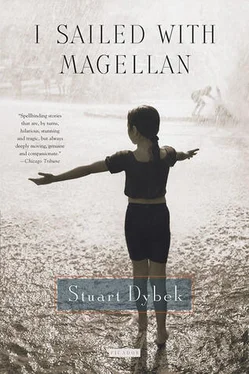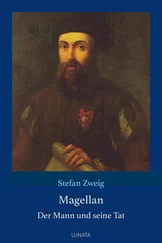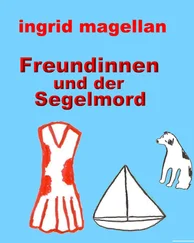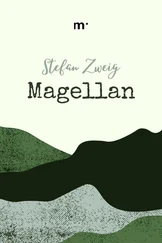“What’s he got against a little local color?”
“I was up in my room playing that Sabicas album and he comes in and tells me he’s sick of hearing flamingo guitar.”
“There it is: the man hates bright colors.”
Stosh shook his head pessimistically. “These beat-out cop sickles wouldn’t make it to Indiana, ese ,” he said. “Let’s go north to freedom. Get some orchids.”
We took Cermak to the Outer Drive, heading north to freedom along the lake. We hadn’t spent much time on the North Side until last fall, when, aimlessly cruising, we’d come upon the filigreed, illuminated dome of the Baha’i Temple rising, like a vision from The Arabian Nights, incongruously over the dark, suburban trees of Wilmette.
We were equally amazed by its incongruity and the fact that we’d never heard of the temple. It was as if, like everyone in Chicago, we knew about Sox Park, Wrigley Field, and the stockyards, but had failed to take notice of the Taj Mahal. Our amazement still hadn’t worn off, so Baha’i became a destination, enough of a reason in itself for us to jump in the car and head north.
“I think I’ve become a Baha’i,” I’d announced one night when Stosh, Angel, and I circled through the terraced gardens surrounding the temple. “Maybe I’ve always been one and didn’t know it.”
“How come, if they’re so interested in universal brotherhood, they didn’t build the temple on the South Side, where there’s a little more ethnic diversity, not to mention good old-fashioned all-American race wars?” Angel asked. “It would look great sprayed with gang graffiti, rising out of the projects on Twenty-sixth.”
Later, he painted a picture of the temple’s simple interior: spiritual light streaming onto a basketball court where a couple guys in gang colors were shooting baskets at a hoop attached to a cross while a freight train disappeared Magritte-like into a portal. The painting, along with the nightscapes which made the mills in South Chicago look like travel posters for the Inferno, became part of the portfolio that won Angel a scholarship to the Art Institute.
The North Side felt almost like another city, one zoned with residential streets in mind, rather than factories and truck docks. It wasn’t fragmented by demolished blocks of urban renewal and stitched together by railroad tracks. Glassy high-rises, courtyard apartment buildings, and elegant hotels overlooked the parks, beaches, and indigo lake.
Off Bryn Mawr we always watched for one hotel in particular, with coral roof tiles and matching windowsills. We didn’t know its name, but it looked like something from some more glamorous past, the twenties, maybe.
“A perfect place for an affair between a mysterious, beautiful, very rich older woman of exquisite taste and a young, gifted artist,” Angel had observed.
“A young artist with a nose like a hose covered in zits and a beard that looks like he’s Krazy-Glued hair from his rectum onto his chin?” Stosh inquired.
“An artist who in a fit of jealous madness cuts off a piece of his hose-nose and then paints a portrait of himself with a huge bandage on what’s left of his prehensile beezer?” I added.
“I should have known better than to bring up something romantic in the company of those warped by Catholic education,” Angel said.
This time, as we passed the coral hotel, Stosh looked at me and started laughing.
“That’s where you should of taken Bus Girl after the prom,” he said, “instead of taking her—” He tried repeatedly to finish his sentence but couldn’t without breaking up. “Instead of taking her to fucking Shit Creek,” he finally managed to spit out. “Whatever possessed you to take her down to Shit Creek on prom night? You are the last of the great romantics!” He was beating the steering wheel, driving in a way that made it feel as if the car was propelled by his laughter.
I gazed out the window and watched the harbors and beaches whiz by. Sailboats staked out the horizon. A skywriter doodled across blue sky. We were on the inner lane doing sixty, and I leaned out squinting against the cool rush of wind. I could smell the lake and the suntan lotion from thousands of opened tubes and, within the boom of traffic, could hear what sounded like snatches of the same Top Forty song blaring from a blur of radios. For a fleeting moment it sounded like the lost, elusive dream melody of Laurel’s song, and I wondered what it would be like to be standing at a coral-silled window stories up gazing down on the patchwork of beach blankets and press of bare bodies. A woman would be standing beside me, her hair up, but it wasn’t Laurel Levanto. It wasn’t anyone I knew yet. Out of nowhere the thought occurred to me that the person I was at this moment in the speeding Merc wasn’t ready for that hotel room either.
“Teeming with peons out there today,” Stosh was saying. He swerved into the next lane, the cab behind honking. The lane we’d been in was stalled behind a rusted station wagon full of kids, smoke spewing from its open hood. Their father, a black guy who’d taken off his shirt and wrapped it around his hand, seemed to be doing a sort of dance, hopping toward the radiator cap, giving it a twist, hopping away.
“Poor joker,” I commented.
“Oh, no! Did you have to admit to noticing that? Did we stop to help our fellow man? No. Now you’ve done it, cabrón. ”
“What?”
“Attracted the attention of the Immortals. ‘As flies to wanton boys are we to the gods, / They kill us for their sport.’” That was another of Stosh’s favorite lines. He’d memorized it from King Lear , the other play we’d had to read in senior year.
“The car’s running fine.”
“Holy shit! He didn’t mean it,” Stosh screamed at the heavens. “He knows not what he speaks. Give us a break just this once. All we want to do is pick a few measly fucken orchids.”
“You’re sure these orchids are even there?” I asked. “I hope this isn’t going to be another wild-goose chase like seeking the dawn.”
“The dawn! You’re going to bring that up? Orchids, I tell you. After shelling out fifteen bucks for my promster corsage, I know orchids when I see them — they’re a kind of obscene orchid color, like they’re exposing their privates. Don’t you start molesting them either. You look like an orchid fucker to me, hummingbird dick.”
“I hate it when you call me that.”
“Hummingbird penis! Hummingbird penis!”
“That’s better. I just don’t want to be involved in another fiasco like the boat ride.”
“First the dawn and now you have to bring up the boat ride. Pretty low. I thought we’d agreed never to speak of it. You were the rectum who wanted to go on the boat ride as I remember. I was hesitating.”
“He who hesitates is lost.”
“Very profound.”
I could tell from the way Stosh’s ears flushed that even kidding about the boat ride still bothered him. He’d learned to control his quick temper, but the blood still rushed up his neck whenever he felt his dignity threatened. After he won the CYO championship, his dignity, at least at St. Augustine High, didn’t get threatened too often. People felt that, even if he wanted to, it was nearly impossible for Stosh to back down.
He looked like a boxer. Partly it was the way he carried himself. I could easily outrun him, but he was lighter on his feet, better balanced. Where his nose had been broken, a slight ridge remained, which gave him a profile off a Roman coin. His usual shadow of stubble highlighted a thin scar along his jawline from a fight on a CTA bus in freshman year when, wearing the colors of the Ambros, a gang he’d belonged to for a while, he’d been slashed. His forearms, one of them still tattooed with the pachuco cross from his brief gang membership, were scarred from fending off the knife in the same fight. He’d carried a switchblade ever since.
Читать дальше












